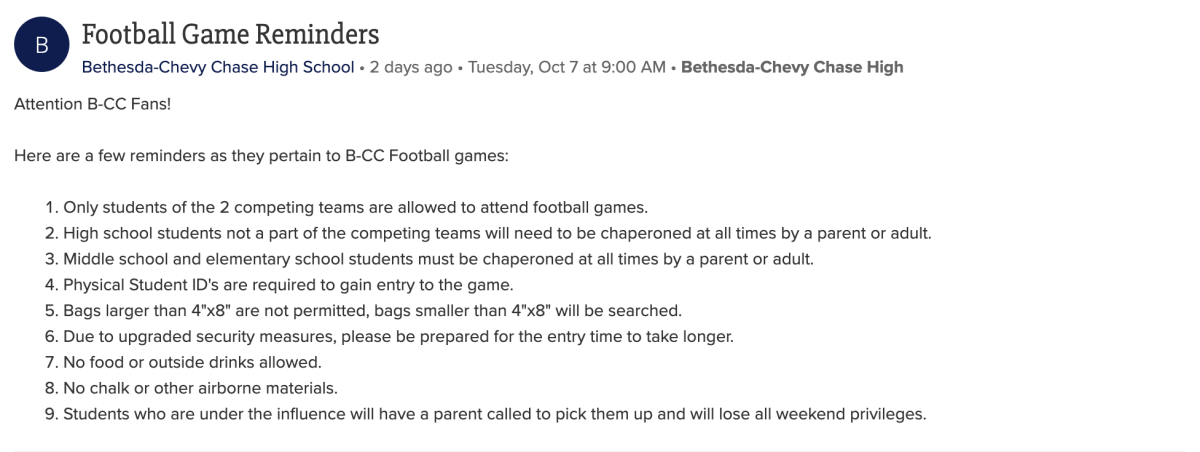The Toll of Internal Assessments on Students

“If I did not have to complete IAs, I would enjoy IB much more,” said senior Maddy Lay, a student in B-CC’s IB diploma program, adding, “The amount of sleep I’ve lost over trying to finish them is immeasurable.”
Most students can relate that when you are assigned a project or paper that isn’t due for a few months, you don’t work on it immediately. Time management is extremely important in this case, and can be the difference between staying up until 11:30 at night or two in the morning trying to make progress on your assessments. “The due date really sneaks up on you, because you still have all this other homework on top of IAs,” says senior Henry Caldicott. “This is when I start staying up until two or three in the morning working on them.”
The combination of lack of sleep and lack of extra time poses consequences to students’ physical and mental health. Sleep deprivation stops students from performing at their best in class, and no free time prevents students from taking necessary breaks from all their schoolwork. The constant late nights and work can lead to a decrease in motivation to continue working hard on assignments, as many seniors are feeling around this time of year. “I have literally no motivation to do anything school-related anymore,” said Caldicott.
As part of the IB final exams, students have to complete Internal Assessments, or IAs. These IAs can be in the form of a spoken oral assessment, a portfolio submission, or papers 15 to 20 pages long depending on the class, and are necessary in order to obtain the IB Diploma (for students in the full diploma program). “You have to complete a total of six IAs to complete the program,” said Lay. “I’ve had to do five of them this year.”
While many students believe junior year to be the most difficult year of high school, IB seniors disagree. “I only had to do one IA last year,” Lay continues. “Junior year has a significantly smaller workload than senior year for IB.” And as soon as IAs wrap up around mid-March/April, preparation for exam season begins.
The main struggle students face when completing IAs is the amount of time required for these assessments. Depending on the format of the IA, they can take up to 10 to 15 hours to complete outside of school. “Most teachers give you a lot of time in class to do IAs,” said Caldicott, adding, “But you end up procrastinating because of all the other homework you still receive in addition.”
However, internal assessments are an integral part in completing the IB exams. They are scored in addition to the final exam to determine a students’ whole grade for the exam. “IA’s can be helpful in understanding a subject better before the final exam,” says Caldicott. They can be a useful tool in reviewing for exams prior to their start. “IA’s can also help to increase your overall exam score,” Lay continues. “If you do very well on your IA and not as well on the actual exam, you still have a good chance at passing the exam.”
The time management skills students develop through the IB program are extremely beneficial when it comes to transitioning to college, which involves more independent study and work. “I feel that the IB program definitely prepared me for college,” said former B-CC student Anabel Kay, adding, “I am now fully prepared to complete almost all of my work because of the practice I had writing essays and doing different types of assignments.”
“IB and AP are not that different in rigor, but IB just has more work to be completed that isn’t always built into class time,” Caldicott concludes.

Courtney Kloss was a member of the communications team and is now a writer for the Tattler. She was one of the field hockey team captains this past...










































Sophia • May 12, 2023 at 10:16 am
IB destroyed my mental health